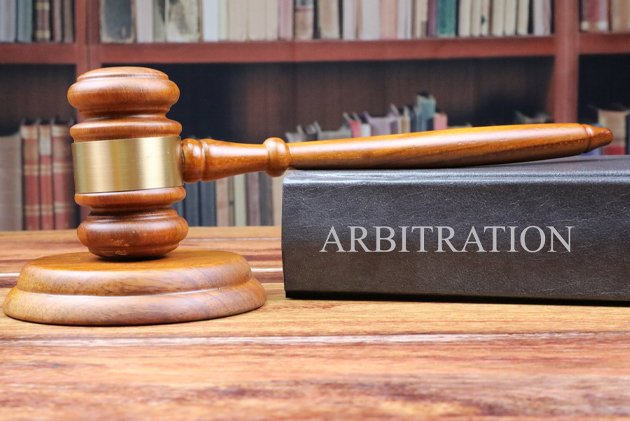June 17, 2025

Judicial Interpretation of Section 34 of the Arbitration and Conciliation Act: Balancing Arbitral Au
The Arbitration and Conciliation Act, 1996 was enacted with the primary objective of providing a speedy and cost-effective dispute resolution mechanism while minimizing judicial intervention. Section 34 of the Act, which governs the challenging of arbitral awards, has been subject to extensive judicial interpretation over the years. This article examines the scope and application of Section 34 through the lens of recent judicial pronouncements, particularly focusing on the Supreme Court's decision in Consolidated Construction Consortium Ltd. v. Software Technology Parks of India (2025) ibclaw.in 166 SC.
The Framework of Section 34
Section 34 of the Arbitration and Conciliation Act provides specific grounds for challenging arbitral awards. These grounds are exhaustive and include party incapacity, invalid arbitration agreements, lack of proper notice, awards exceeding the scope of submission to arbitration, improper composition of the tribunal, non-arbitrable subject matter, and conflict with public policy.
The provision is designed to ensure minimal judicial intervention while maintaining the integrity of the arbitral process. Courts have consistently emphasized that the scope of interference under Section 34 is narrow and that they cannot reappraise evidence or review the merits of the case.
The Consolidated Construction Case: Facts and Background
In Consolidated Construction Consortium Ltd. v. Software Technology Parks of India, the Supreme Court addressed a dispute arising from a construction contract. The appellant (Consolidated Construction) had been awarded a contract to build an office complex for the respondent (Software Technology Parks of India) . The project, with a total cost of Rs. 16,48,69,970.00, was initially scheduled for completion by January 15, 2007, but was only completed on November 30, 2007, resulting in a 10-month delay.
The respondent deducted Rs. 82,43,499.00 as liquidated damages due to the delay. The appellant challenged this deduction, arguing that the respondent had extended the completion time and that the work was finished within the extended period.
Judicial Journey of the Dispute
The dispute went through multiple levels of adjudication:
- An arbitral tribunal ruled in favor of the respondent, allowing the deduction of liquidated damages.
- The appellant challenged this award under Section 34 of the Act before a Single Judge of the Madras High Court, who set aside the award.
- The respondent appealed to a Division Bench of the High Court under Section 37 of the Act, which reversed the Single Judge's decision and restored the arbitral award.
- The appellant then approached the Supreme Court.
Supreme Court's Analysis
The Supreme Court's judgment in Consolidated Construction provides valuable insights into the interpretation and application of Section 34. The Court emphasized that the role of courts under Section 34 is "clearly demarcated" and represents a "restrictive jurisdiction" that "has to be invoked in a conservative manner".
The Court observed that "arbitral autonomy must be respected and judicial interference should remain minimal otherwise it will defeat the very object of the 1996 Act". This observation aligns with the pro-award approach that Indian courts have adopted over the years.
In examining the Single Judge's decision to set aside the arbitral award, the Supreme Court found that the judge had exceeded the jurisdiction under Section 34 by essentially reappraising the evidence and substituting their own view for that of the arbitral tribunal.
The Concept of Public Policy
One of the most frequently invoked grounds for challenging arbitral awards under Section 34 is conflict with public policy. The concept of public policy has evolved through judicial decisions. In ONGC v. Saw Pipes Ltd. (2003) 5 SCC 705, the Supreme Court expanded the scope to include "patent illegality," while later judgments like Associate Builders v. DDA (2015) 3 SCC 49 emphasized minimal interference.
Section 34 now includes Explanation 1, which clarifies that an award is in conflict with the public policy of India only if the making of the award was induced or affected by fraud or corruption, is in contravention with the fundamental policy of Indian law, or is in conflict with the most basic notions of morality or justice.
Explanation 2 further specifies that the test for contravention with the fundamental policy of Indian law shall not entail a review on the merits of the dispute. This reinforces the principle that courts should not act as appellate bodies when examining arbitral awards.
Patent Illegality
Section 34(2-A) allows for setting aside an arbitral award arising out of arbitration other than international commercial arbitration if the court finds that the award is vitiated by patent illegality appearing on the face of the award. However, the proviso to this sub-section clarifies that an award shall not be set aside merely on the ground of an erroneous application of the law or by reappreciation of evidence.
In Associate Builders v. Delhi Development Authority, the Supreme Court elaborated that "patent illegality" must go to the root of the matter and cannot be trivial. It includes contraventions of substantive law, the Arbitration Act, or the terms of the contract.
Procedural Aspects of Section 34
Section 34 also outlines important procedural aspects for challenging arbitral awards:
- Time Limit: An application to set aside an arbitral award must be made within three months from the date of receipt of the award, with a possible 30-day extension for sufficient cause.
- Partial Setting Aside: If decisions on matters submitted to arbitration can be separated from those not submitted, only the part of the award dealing with matters not submitted to arbitration may be set aside.
- Remission to Arbitral Tribunal: The court may adjourn proceedings and remit the matter to the arbitral tribunal to eliminate grounds for setting aside the award .
Voidable Contracts and Section 55 of the Indian Contract Act
In the Consolidated Construction case, the Supreme Court also touched upon Section 55 of the Indian Contract Act, 1872, which deals with time as the essence of a contract. Under this section, a contract becomes voidable at the promisee's option if the promisor fails to perform obligations by a specified time, provided that time was intended to be of the essence of the contract.
The intention to make time essential must be expressed in unmistakable language or inferred from the nature of the property, conduct of the parties, and surrounding circumstances. If time is not of the essence, the contract does not become voidable due to failure to perform within the specified time, but the promisee is entitled to compensation for any loss caused by the delay.
In construction contracts, courts generally presume that time is not of the essence unless explicitly stated otherwise. This principle was relevant in the Consolidated Construction case, where the appellant argued that time was not of the essence in the construction contract.
Conclusion
The Supreme Court's decision in Consolidated Construction Consortium Ltd. v. Software Technology Parks of India reinforces the principle of minimal judicial interference in arbitration matters and the finality of arbitral awards except on very limited grounds as specified in Section 34 of the Arbitration and Conciliation Act.
Section 34 strikes a balance between judicial oversight and arbitral autonomy, providing specific grounds for challenging awards while ensuring minimal interference. Judicial interpretations have further refined its scope, emphasizing the principles of finality, expediency, and deference to the arbitral process.
As the jurisprudence on Section 34 continues to evolve, it is clear that Indian courts are committed to upholding the integrity of arbitration as an effective alternative dispute resolution mechanism while ensuring that fundamental legal and procedural standards are met.
Authored By:
Ms. Nivedita Chauhan, Advocate
Founder & Managing Partner



